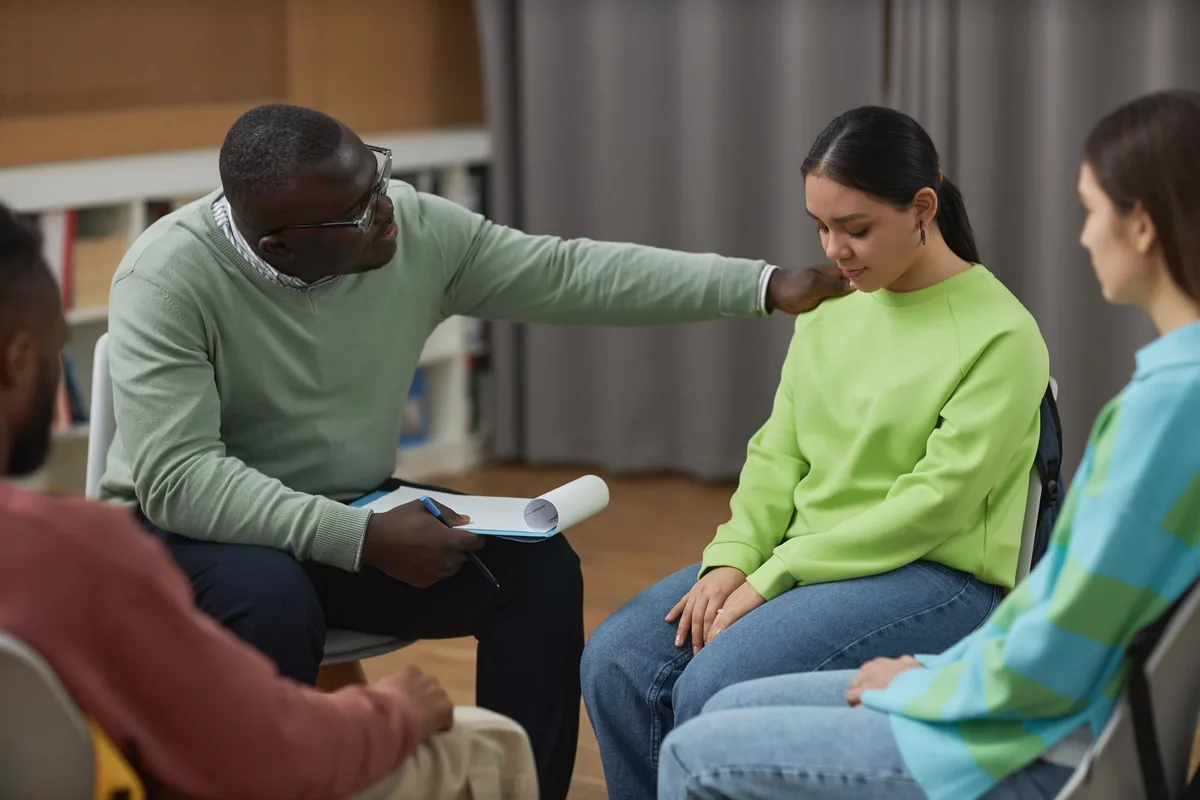24/7 Helpline:
(866) 899-221924/7 Helpline:
(866) 899-2219
Learn more about OCD Treatment centers in Evangeline County
OCD Treatment in Other Counties

Other Insurance Options

Self-pay options

Access to Recovery (ATR) Voucher

WellPoint

BHS | Behavioral Health Systems

Private insurance

Ceridian

State Farm

Magellan Health

Group Health Incorporated

MVP Healthcare

GEHA

Carleon

Optum

Lucent

Optima

Health Choice

EmblemHealth

American Behavioral

CareFirst

Evernorth

Compass Behavioral Center
Compass Behavioral Center is a private rehab located in Mamou, Louisiana. Compass Behavioral Center ...
















Ville Platte Behavioral Health Clinic
Ville Platte Behavioral Health Clinic by Acadiana Area Human Services District provides comprehensiv...











































